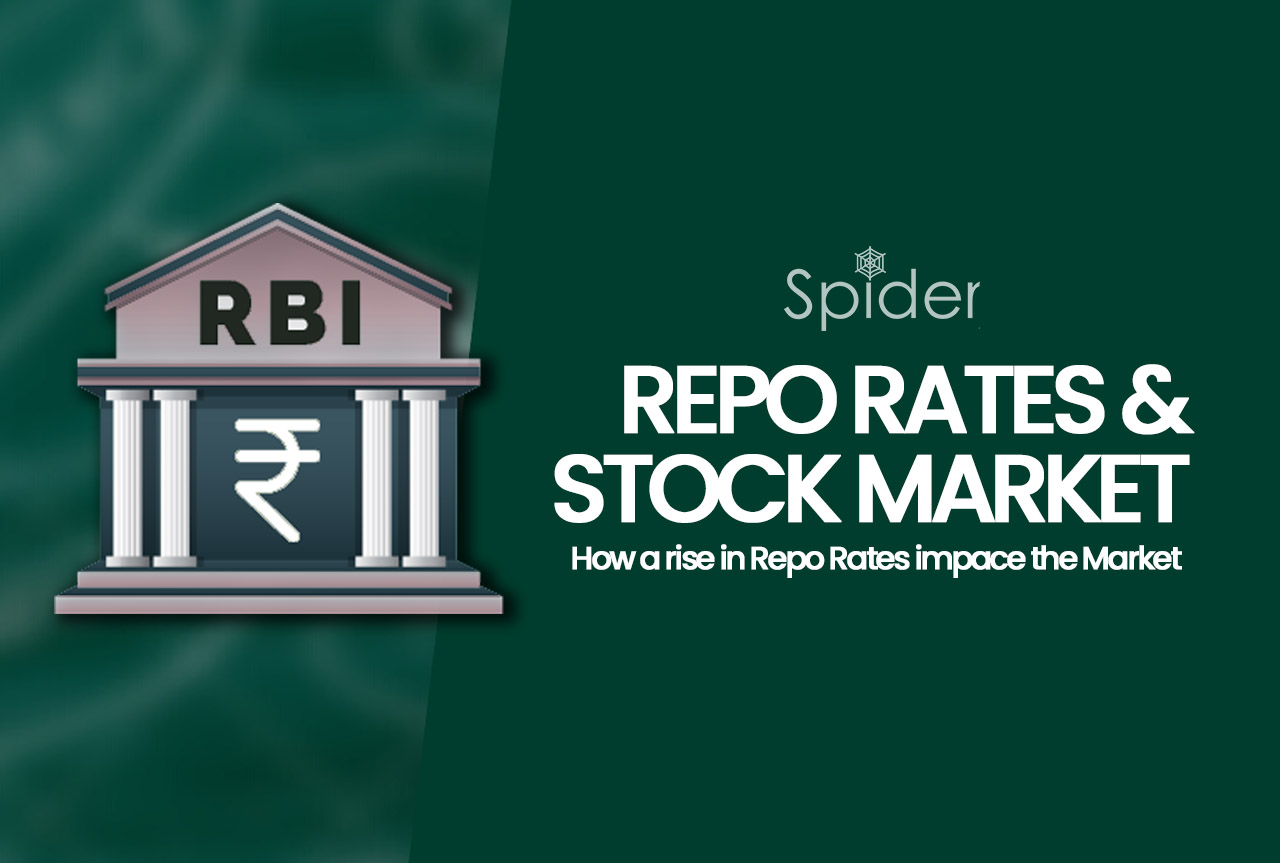Interest rates (RBI Repo Rate) and stock markets have an inverse relationship and move in a constant cycle of ups and down
Inflation is indeed a major concern worldwide, and various measures are being taken to address it. One of these measures is increasing interest rates, which can have both positive and negative effects.
When interest rates increase, the cost of borrowing money goes up. This means that loans, including mortgages and other types of loans, become more expensive, and so do EMIs that need to be paid by an average person. This can have a negative impact on people’s spending and consumption patterns, which in turn can slow down economic growth.

What is the interest rate?
Interest rate is the fee that a borrower pays a lender for the use of borrowed money or assets. It is usually expressed as a percentage of the principal amount and can be calculated for different periods of time, such as annually or monthly.
In the context of monetary policy, interest rate refers to the rate at which a central bank lends money to commercial banks, known as the policy rate or base rate. The central bank adjusts the policy rate to manage inflation and economic growth. If inflation is high, the central bank may raise interest rates to make borrowing more expensive and slow down economic growth. Conversely, if there is a recession, the central bank may lower interest rates to make borrowing cheaper and stimulate economic growth.
How does Interest rate affect stock prices?
- High interest rates can increase the cost of borrowing for companies, leading to a decrease in profits and potentially lower stock prices.
- Higher borrowing costs may also result in companies cutting costs or reducing investment in growth opportunities, which can negatively impact their earnings and stock prices.
- Higher interest rates can also make bonds and other fixed-income securities more attractive to investors, causing them to shift their investments away from stocks and leading to a drop in stock prices.
- Conversely, lower interest rates can make borrowing cheaper for companies, potentially leading to an increase in profits and boosting stock prices.
- Lower interest rates may also make stocks more attractive to investors compared to bonds and other fixed-income securities, potentially leading to higher stock prices.
- Changes in interest rates can also impact investor sentiment and confidence in the economy, which can affect stock prices.
Is Investing in stocks amid high interest a Bad Choice?
It is important to note that investing in stocks carries risk, regardless of market conditions. However, the volatility of the stock market does not necessarily mean that stocks are a bad investment option, especially for those with a long-term investment horizon. While rising interest rates can impact certain sectors and companies, a well-diversified portfolio can help mitigate the impact of market fluctuations.
Furthermore, investors can consider a range of investment strategies and approaches, such as value investing, growth investing, or dividend investing, depending on their financial goals, risk tolerance, and investment time horizon. It is always recommended to consult with a financial advisor and conduct thorough research before making any investment decisions.







